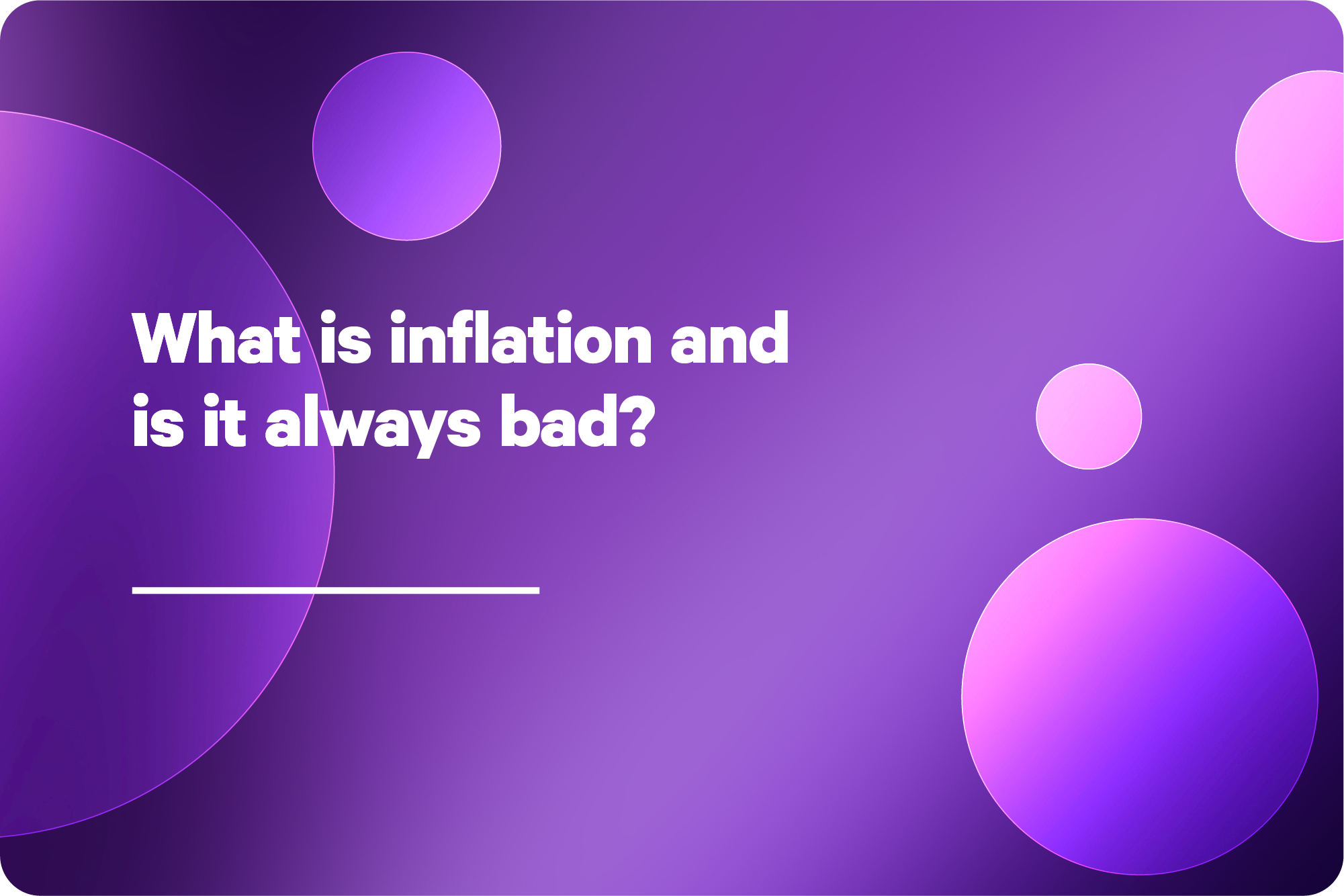What is inflation?
Inflation is the process by which the face value of the currency in a particular economy can lose real spending power, over time. And because a fixed amount of the currency is worth less, prices must increase to account for this.
More specifically, it’s the rate at which this decline in purchasing power occurs. And if you have any money saved... then this affects you!
Inflation is usually expressed as a percentage figure.
Inflations effects, explained simply
Inflation means that money will slowly lose 'purchasing power' (i.e. what can be bought with a given amount of money). And it's bad news for savers!
Price inflation means that a unit of currency effectively buys fewer products and services than it did previously. During periods of inflation, rising prices mean that the pesky 'cost of living' will keep gradually increasing over time.
So, if you stash £10 under your mattress this year, with an example annual inflation rate of 11%, higher prices mean that your money's spending power will be equivalent to £8.90 when you retrieve it the following year.
The cruel thing about it is that it can be considered a universal tax because it targets normal folk just as mercilessly as it does the rich.
How is inflation measured?
It’s possible to get a measure of inflation by looking at the rate of increase in the average prices from a representative basket of goods and services.
The precise goods and services within this imaginary basket are selected to reflect the overall economy, with the list constantly updated to reflect changing tastes and provide a cross-section of society.
The Office for National Statistics (ONS) produces three inflation metrics:
- the Consumer Prices Index (CPI)
- the CPI includes owner-occupiers' housing costs (CPIH)
- the Retail Prices Index (RPI)
How does inflation affect me?
Inflation erodes the actual spending power of money (a currency), meaning that the list price of goods and services must be increased to reflect that because e.g. £1 will be worth less in real terms as time passes.
Because the cost of living continually rises during periods of higher inflation, your wages have to keep up, or your actual standard of living (aka, the nice things you can afford to buy with your money) will decrease in real terms 🎁
Is inflation good or bad?
As we've already discussed, inflation is very much a bad thing for savers.
In fact, it's bad for people who hold any assets that are denominated in currency, like cash, or even bonds. Because over time, the real value of these assets will be eroded.
However, there are some circumstances where moderate inflation can provide benefits to certain people and sectors of the economy. Because to counteract the effects, consumers and businesses alike may be more inclined to take risks in chasing higher returns.
Inflation reduces the purchasing power of money over time, which means there may be a greater incentive to spend now (in the converse situation, saving would make more sense, because your money would be worth more in the future without you needing to do anything at all).
This increased activity and spending is good for a country's economic growth.
Who benefits from inflation?
Although inflation is bad for savers, it can actually benefit borrowers.
In addition, for people who own assets that are priced in a particular currency, like property, high inflation might be a good thing. It increases the price of their assets, which they can then sell at a higher rate.
People with a fixed-rate mortgage will effectively have their debt reduced during periods when inflation rises unexpectedly.
Price increases can also act as a release valve for the economy, allowing it to continually respond to changing market conditions better than in periods of price stability. With rising inflation, the potential growth stimulated will naturally be directed to areas which need it the most, while workers' salaries can be harmonised according to demand in the job market.
How to fight inflation
To counteract the effects of inflation you'll need to ensure your money is earning a return that's greater than the current rate of inflation.
Your cash will lose spending power over time unless you can do this.
One way to earn a return on your money is by keeping it in a Cash ISA or savings account that pays interest. However, this might not be enough to protect the value of your cash savings during times of high inflation (as we’re currently witnessing in the UK). That's because the rate set by the Bank of England can't keep up with the sheer pace of inflation.
Savers with any significant amount tucked away will often look to a Stocks & Shares ISA as a possible way to increase their returns.
If you’re looking for a way to make your money work for you, by hopefully earning a return, you can consider investing it.
There are many different types of investments, including real estate or precious metals, but a common option is to buy company stocks/shares (either directly or contained within an investment fund).
Capital at risk if you invest.
Check out our website if you’d like to learn more about how Plum can help you combat the effects of inflation.
Download Plum
